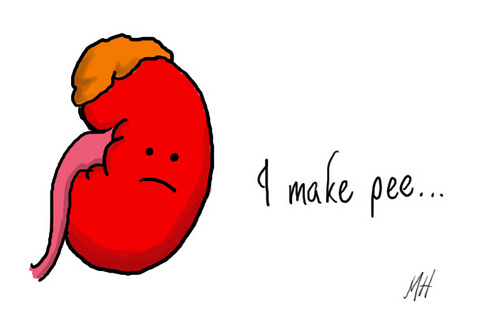Kidney conditions can manifest themselves with a variety of symptoms, such as general tiredness or the swelling of limbs from the retention of excess fluid. However, 90% of kidney function can be lost without experiencing any symptoms.1 The only way to diagnose an underlying condition properly is via testing in a pathology lab.
One in three Australians are at increased risk of kidney disease according to Kidney Health Australia. There are any number of tests that can be used for screening and diagnostic purposes, involving urine and blood samples. Pathologists and medical scientists analyse the chemical composition of these fluids in order to make a diagnosis that doctors need to help manage any conditions that might be revealed.
Tests might reveal a urinary tract infection or conditions like kidney injury or nephrotic syndrome.
If you or a loved one are diagnosed with a serious kidney disease your health provider will work with pathology to help monitor your kidney function during treatment.
Organ transplant
Late stage kidney disease may require transplant, and with one of the highest success rates for organ transplants in the world, and survival rates exceeding over 90 per cent in the first year, Australia is at the leading edge of medical transplants.
In Australia, the number of people on the waiting list for kidney transplants is usually around 1,500 at any one time, with the wait time usually over three years.
For those individuals requiring kidney transplants, and their loved ones, there are some exciting developments on the horizon.
New developments
A recent US study based on a trial of 10 organ donors has reported that people receiving kidneys from donors infected with Hepatitis C did not themselves become ill with the virus after taking a course of antiviral medications.
The researchers tested the 10 participants 12 weeks after the drug treatment ended and did not detect Hepatitis C in their blood, although they detected antibodies to the virus in five. But if it was transmitted, transplant infectious disease specialist at Massachusetts General Hospital in Boston, Jay Fishman remains positive, saying “we can manage it”.
In another exciting development, a recent large-scale clinical trial conducted by the National Institutes of Health in the US could allow HIV-positive patients with kidney (or liver) disease to receive transplants from others affected by HIV.
While HIV infected organs are only transferrable to those also living with HIV, the transplant would not only benefit HIV-positive people but also bumps everyone else up on the organ transplant waitlist.
Both studies are great news for those on waiting lists.
Pathology’s role in kidney donation
A test known as ‘tissue typing’ is performed in pathology labs, and today’s techniques mean that DNA testing can be used to obtain the best match possible between donor and recipient. This reduces the risk of a recipient’s immune system rejecting the new organ.
Living kidney donors will also need a range of tests to check they meet health requirements and that donation will be safe for them and for the recipient. As well as the tests to determine if they are a good match, tests to check general health, kidney function and screening for certain illnesses will also be performed. With new developments such as these new studies, pathology is an integral part of monitoring the health of participants, side effects and success.
All transplant recipients need to take medication to reduce the chance of rejection and post-transplant pathology tests will be used to monitor the kidney’s function, assess how the body is responding and pathology will continue to be a part of managing their health into the future.

